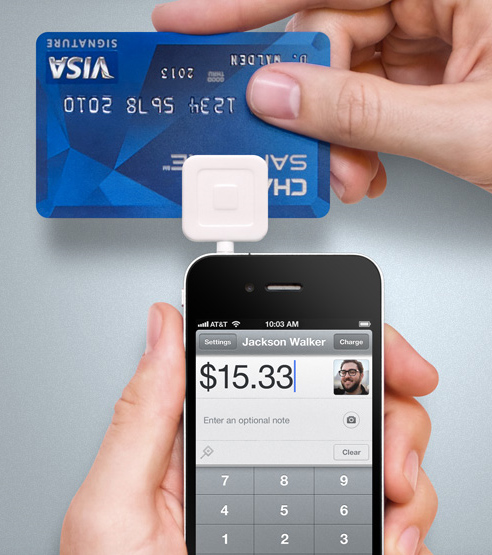Merchant Processing
Debit Card Costs May be Put on the Consumer: Don’t Make Us Pay
August 23, 2011Originally published on February 18, 2011.
 Back on December 17th, 2010, we published an article outlining the alarming terms of Debit Card Fee Reform. If you haven’t read up on what’s happened, the Federal Reserve has imposed a pricing cap on the cost a retailer pays to do debit card transactions. It’s scheduled to go into effect in July, 2011. The cap is so severe, that it would no longer be financially viable for banks to continue issuing them.
Back on December 17th, 2010, we published an article outlining the alarming terms of Debit Card Fee Reform. If you haven’t read up on what’s happened, the Federal Reserve has imposed a pricing cap on the cost a retailer pays to do debit card transactions. It’s scheduled to go into effect in July, 2011. The cap is so severe, that it would no longer be financially viable for banks to continue issuing them.
There is of course one solution that would allow banks to continue debit processing and that’s to push the transaction costs to the other party involved, the consumer. This would mean that as a result of the Wall Street Reform Act, consumers will be paying more than ever. How’s that for unintended consequences!
Some people aren’t happy so we’ll cut to the chase and let you know that we found a special gem of an organization, www.dontmakeuspay.org. This website is providing users with up to date information on the new debit card reform law, as well as the proper tools to speak out to politicians. They provide a prewritten letter and automatically address it to the U.S. Senators and Representatives in your state. The full language of it is below:
“As your constituent, I am writing to urge you to stop the debit card interchange rule before it harms debit card users like me.
The only beneficiaries of this harmful rule are retailers, who will take home an additional $14 billion in profits – and consumers will be left to deal with the consequences. The rule does not require that retailers pass along even one penny of their savings to customers. Meanwhile, banks, forced to lose money on debit interchange transactions, will be forced to compensate by increasing fees for deposit customers.
The fact is that retailers receive tremendous benefits when they accept debit cards for payment, including higher sales, lower costs and guaranteed payment. That’s why millions of retailers have chosen to accept debit cards – and that number is growing.
In effect, consumers like me will end up paying for a payments system that provides retailers with extraordinary value.
I don’t want to be forced to pay higher fees, give up my rewards, and lose my free checking account – just so retailers can have an extra $14 billion in profits.
Congress should be in the business of protecting consumers, not forcing us to pay for the costs of giant retailers.
Please repeal this harmful rule before it’s too late.”
We are of course in favor of small business, but it is unlikely that they will reap the supposed benefits either. This is a lose-lose-lose-lose deal. (I think we forgot another ‘lose’ or two). If you’re in favor, sign the letter!
We’ll keep you updated on the developments of this law.
-deBanked
Image Copyrighted by: 123RF
Square Eliminates 15% Transaction Fee
August 23, 2011
According to their Twitter Feed, Square, the iPhone, Android, and iPad Card Reader has announced the removal of the 15 cent transaction fee. The card swipe rate will remain at 2.75%. For low ticket, high volume businesses, this will significantly improve margins.
About
Square is a revolutionary service that enables anyone to accept credit cards anywhere. Square offers an easy to use, free credit card reader that plugs into a phone or iPad. It’s simple to sign up. There is no extra equipment, complicated contracts, monthly fees or merchant account required.
Co-founded by Jim McKelvey and Jack Dorsey in 2009, the company is headquartered in San Francisco with additional offices in Saint Louis and New York City. They can be found at: www.squareup.com

– deBanked
A Portion of Your Credit Card Processing Fees Go To Charity. Is it Worth it?
August 23, 2011
About 5 years ago, we first heard the idea of donating a portion of the credit card processing fees earned to charity. We considered it to be a genius marketing tactic. What business owner wouldn’t want a portion of their fees (so long as your fees aren’t going up!) to go to a charity of their choice? And that’s just what they want you to think. Merchant service providers had really struck a chord with this marketing campaign.
But before business owners nail a giant sign to their door announcing their extreme generosity to impress the community, how much is a portion exactly? We’ll use charity promoting heavyweight, Fees to Funds, as an example. Operating under the slogan “Generosity in Action”, Fees to Funds promises to donate 25% of their gross revenues to a charity of the business owner’s choice. While being completely open about the percentage, they rely on the general public’s lack of understanding on how the merchant processing industry works.
It’s important to grasp that the majority of what businesses pay in acceptance fees is being applied to interchange costs. Interchange Rates are set by Visa and MasterCard and are uniform nationwide. Interchange is payable to the banks that issue the cards to the consumer. So for example, when a customer uses a Bank of America Visa Card to pay at a restaurant, the majority of the card acceptance cost is going to Bank of America. Very little actually goes to the merchant processing provider that services the account for the restaurant.
In the case of Fees to Funds, they are not even the direct merchant processing provider but rather are a reseller for iPayment and Allied Bankcard. This means the tiny portion above interchange that is actually going to the merchant processing provider is then split with Fees to Funds. 25% of What Fees to Funds grosses is then applied to your charity. Suddenly your charitable contributions are not so generous…
So let’s do the approximate math:
A small restaurant processing $10,000 per month in Visa/MasterCard sales agrees to the charity program. Fees to Funds agrees to keep your rate structure the same. On $10,000, the business is currently paying net fees of 2.5% ($250). Of the $250, approximately $200 is applied to Interchange and paid out to the banks that issued the cards to your customers.
That leaves $50. Visa and MasterCard charge network fees of 11 basis points or .11%. .11% of $10,000 is $11. Subtract $11 from the $50.
That brings it to $39. Since Fees for Funds is a reseller of iPayment and Allied Bankcard, they split the revenue. (Let’s say it’s 60-40 in Fees to Funds favor.)
That brings it to $23.40 that is paid to Fees to Funds. 25% of their gross revenus is applied to charity.
$5.85 is paid to the charity. That is 2.34% of the total net fees.
While we can’t say what the results will be for every business, this reflects a real life scenario. Our advice? Donate to charity on your own or seek out lower processing costs. Treat these charity gimmicks for what they are, just gimmicks.
-deBanked
Say Goodbye to Debit Cards
August 23, 2011Originally Published on March 11, 2011.
We’ve been saying it since December 2010, that Debit cards will cease to exist when the new Wall Street reform laws go into effect. On February 18th, we argued that the cost of a debit card transaction would shift from the retailer to the customer. You can view that article here: Debit Card Costs May Be Put on The Consumer – Don’t Make us Pay!.
We were right on the mark. Today JPMorgan Chase announced that debit card carrying customers would soon be subject to a purchase cap of $50 – $100 per transaction. As a result, a huge chunk of the U.S. population would no longer be able to make an average size purchae. The new video game system? Too big. A computer? Too much money. A bar tab? Better bring cash…
The reason for such a dramatic change was provoked by Debit card reform. In July 2011, the Federal Reserve will begin enforcing a maximum debit card transaction cost of 12 cents. For card issuing banks, payment networks, acquirers, and ISOs, this 12 cents is too low to be profitable, let alone sustainable. As a result, banks must make up for the loss by charging consumers.
For more information, check out the CNN article.
– deBanked
Debit Interchange Fee Study Act: A Few Good Senators Try to Stop the Madness
August 23, 2011Originally published on March 17, 2011.
What started as a citizen revolt against Wall Street to both punish them for the previous recession and prevent another one, has now morphed and devolved into a personal battle that threatens to eliminate the use of money altogether.
JPMorgan Chase, one of the largest card issuers in the world recently stated the legislation may force them to limit the amount a consumer can spend in a single debit card transaction to as low as $50. Need a full tank of gas? You better bring cash!
The Durbin Amendment of the Wall Street Reform and Consumer Protection Act will instate a flat 12 cent cap on Debit Card “interchange fees” effective as of July, 2011. The media communicated this cap as a “flat swipe fee”, a term used in such incorrect context that it has even confused executives of major card processors. How can public opinion be formed or swayed when the media and quite possibly the Senators and Congressman that passed the law fail to understand what “interchange fees” actually are and who they are paid to?
The original 176 page study and law can be downloaded here. It outlines on page 7 what they believe to be a 5 party system. It actually refers to it as a 4 party system and then corrects itself in the footnotes.
- Party #1 – The Cardholder/Customer
- Party #2 – The Card Issuing Bank (The bank that gave the customer the card. aka Wells Fargo, Bank of America, etc.)
- Party #3 – The Business/Merchant That is Accepting the Card as Payment
- Party #4 – The Acquiring Bank (The bank that allows the merchant to accept a credit card and services their account)
- Party #5 – The Payment Network (Visa or MasterCard or whichever brand’s logo is indicated on the card or used to transfer information from the merchant’s Acquiring Bank over to the customer’s Card Issuing Bank.)
Party #4 consists of multiple layers including companies that do all or just one of: marketing and underwriting the risk of the debit card accounts, processing the payments, receiving and providing settlement for the transactions, and maintaining the reports while offering support to the merchant.
Add that to the fact that the Federal Reserve at times seems to misuse “interchange fees.” Interchange fees are associated only with Party #2, the Card Issuing bank. The bulk of the report does indeed seem to limit the scope of the 12 cent cap to Card Issuing Banks. That implies and makes evident that the overall swipe fee that merchants pay will not have any such cap at all, but party #2 will be greatly affected. Since the Acquiring Banks are not clearly defined as subject to inclusion in the cap (it’s mentioned vaguely in a few paragraphs and footnotes), then the media frenzied reporting of a “12 cent swipe fee” would not be true at all. The Acquiring Banks and all the layers within them could fill the gap and keep the overall swipe fee that a merchant pays, the same. D’oh!
But Card Issuing banks are up in arms because the cap is impossible to sustain and it is even acknowledged in the report. The report quotes, “An issuer with costs above the cap would not receive interchange fees to cover those higher costs. As a result, a high-cost issuer would have an incentive to reduce its costs in order to avoid a penalty.” With millions of people in the industry, does the Federal Reserve really think that banks have at no point considered how to reduce costs already?
Too Rich?
As hard working Americans, we so badly want “Wall Street” and the “Big Banks” to simply be a handful of arrogant individuals in overpriced suits, drinking fine wines, while chatting about their new private jets and weekend trips to Paris. But instead the financial services industry employs millions of individuals, many who make less than $35,000/ year.

How many administrative assistants, customer support reps, technical support reps, risk analysts, underwriters, fraud prevention managers, internal IT & systems support reps, compliance officers, bookkeepers, internal auditors, salesmen, marketers, lawyers, and handlers of human resources do you think are employed in the electronic payments industry?

If these jobs were lost or affected, consider the consequences to the businesses that support them. How many supply companies sell them paper, business cards, printer ink, pens, and staplers? How many accountants do their books? How many IT companies sell them computer hardware and technology? These millions of workers do not starve to death, but rather eat breakfast and lunches at restaurants and cafes near their offices. How many restaurants and cafes depend on their business? How many cleaning services have contracts to maintain their offices? How many dealerships sell these workers cars?
How many of these people are doing the job just to support their families? We are not using the face of the hard working middle class to support our argument, but they will certainly become unwitting victims. While the contributors to our site are involved in the electronic payments industry, we are not executives, higher ups, or even rich. The site’s core message is to guide business owners to get the best deal in an industry that is already highly competitive and tough to understand.
Let us state this: Some banks have excessive profits and some executives in the payment industry are just a little too rich for comfort. But cutting what many experts are saying is $14 Billion dollars worth of revenue as of the result of this legislation isn’t going to affect the big guys, it’s going to clamp down on the little ones.
Didn’t the Article Title Mention Something about Senators?
Some may consider our message to be astroturfing but we’re just explaining the other side of the story. Before we regulate ourselves into a world without debit cards and the loss of a few milliion jobs, we applaud a few good Senators for introducing the Debit Interchange Fee Study Act of 2011. It aims to delay the Durbin Amendment for 2 years until a better system can be created. We like to think of it as taking a deep breath, composing ourselves, and then really trying to tackle the issue.
The sponsors of the Act are:
- Jon Tester D-Montana
- Bob Corker R-Tennessee
- John Kyl R-Arizona
- Ben Nelson D-Nebraska
- Tom Carper D-Delaware
- Chris Coons D-Delaware (What would Christine O’Donnell have done?)
- Pat Roberts R-Kansas
- Mike Lee R-Utah
- Pat Toomey R-Pennsylvania
Everyone wants lower costs but let’s do it right.
– deBanked
Could Your Credit Card Tip Be Hurting Your Server?
August 23, 2011
According to an article on Creditcard.com, “servers’ credit card gratuities may be reduced to offset the cost of interchange fees the restaurant pays to process credit transactions.” Interchange is a large part of the cost that businesses incur for accepting a credit or debit card. It’s charged as a percentage of the total sale, including a tip. That means the larger the tip, the larger the fee.
 Some businesses are reportedly offsetting the costs against the waitstaff’s income, a practice that may seem unfair, but may also be necessary. Take this case for example: One of our contributors is actually great friends with a bartender. Known for being the “cute blonde” behind the bar, her loyal patrons shower her with overly generous tips. A $30 tab is often bolstered by a $20 gratuity, for a total of $50. In one instance a $20 drink order came back with $100 written in for her, along with a personal note and phone number. She thought it was a sweet way for stranger to ask her out but the owner was furious at the end of the night. He kept going on and on about how he was glad the customers loved her, but that the charges on her enormous tips were starting to hurt the bottom line. Though we’re told it’s never gotten to the point where it comes out of her end, she pretends the credit card machine is broken from time to time to encourage cash.
Some businesses are reportedly offsetting the costs against the waitstaff’s income, a practice that may seem unfair, but may also be necessary. Take this case for example: One of our contributors is actually great friends with a bartender. Known for being the “cute blonde” behind the bar, her loyal patrons shower her with overly generous tips. A $30 tab is often bolstered by a $20 gratuity, for a total of $50. In one instance a $20 drink order came back with $100 written in for her, along with a personal note and phone number. She thought it was a sweet way for stranger to ask her out but the owner was furious at the end of the night. He kept going on and on about how he was glad the customers loved her, but that the charges on her enormous tips were starting to hurt the bottom line. Though we’re told it’s never gotten to the point where it comes out of her end, she pretends the credit card machine is broken from time to time to encourage cash.
The author at creditcards.com recommends tipping in cash whenever possible. It saves time for the server, allows them to cash out quicker at the end of the night, and is less likely to be recorded as income with the IRS. But if cash isn’t your thing, “when in doubt, just tip well.” It’s always appreciated regardless.
We covered this topic back in December. Full article: Consumers Can Help Businesses Save Money on Their Credit Card Processing
-deBanked
Image Copyrighted by 123RF.com
Debit Card Rewards Go the Way of the Dinosaur
August 23, 2011Originally Published on March 23, 2011.
And yet another one of our predictions is unfolding….say goodbye to Debit card rewards! Back on December 17th, we specifically stated this would be one of the many casualties caused by the Federal Reserve price cap.
On March 21, 2011 one of the largest card issuers in the world made this announcement: JPMorgan Will Cease Debit-Card Rewards Program Because of Proposed Fee Cap. A quote from the article:
“JPMorgan Chase & Co. (JPM) will stop offering debit-card rewards for almost all of its customers in July to reduce losses from a proposed cap on interchange fees. The company is mailing letters to customers announcing the change, said Tom Kelly, a spokesman for the bank. New York-based JPMorgan said in November it would end rewards for new customers in February.“
Well, we said it once, and we’ll keep on saying it: The Durbin Amendment is bad news!
More articles from us on this topic:
Debit Card Costs May Be Put on The Consumer
Debit Interchange Fee Study Act – A Few Good Senators Try to Stop the Madness
– deBanked
Wells Fargo, Chase, SunTrust Cancel Debit Rewards Program
August 23, 2011Originally Published on March 28, 2011.
And the damage continues:
“March 26, NEW YORK (CNNMoney) — Debit card rewards programs are vanishing at several major banks.
Wells Fargo said Friday that it will no longer offer its debit rewards program for new customers. This will go into effect March 27 at Wachovia and April 15 at Wells Fargo (WFC, Fortune 500), while existing customers will remain unaffected for the time being.
JPMorgan Chase (JPM, Fortune 500) notified existing customers last week that their debit rewards programs will disappear July 19. The bank eliminated debit rewards for new customers in February.“
See Our Articles on This Topic
Debit Interchange Fee Study Act – A Few Good Senators Try to Stop the Madness
Debit Card Costs May Be Put on The Consumer – Don’t Make Us Pay
Electronic Payments Industry Changing Forever – All Points Bulletin
-deBanked





























